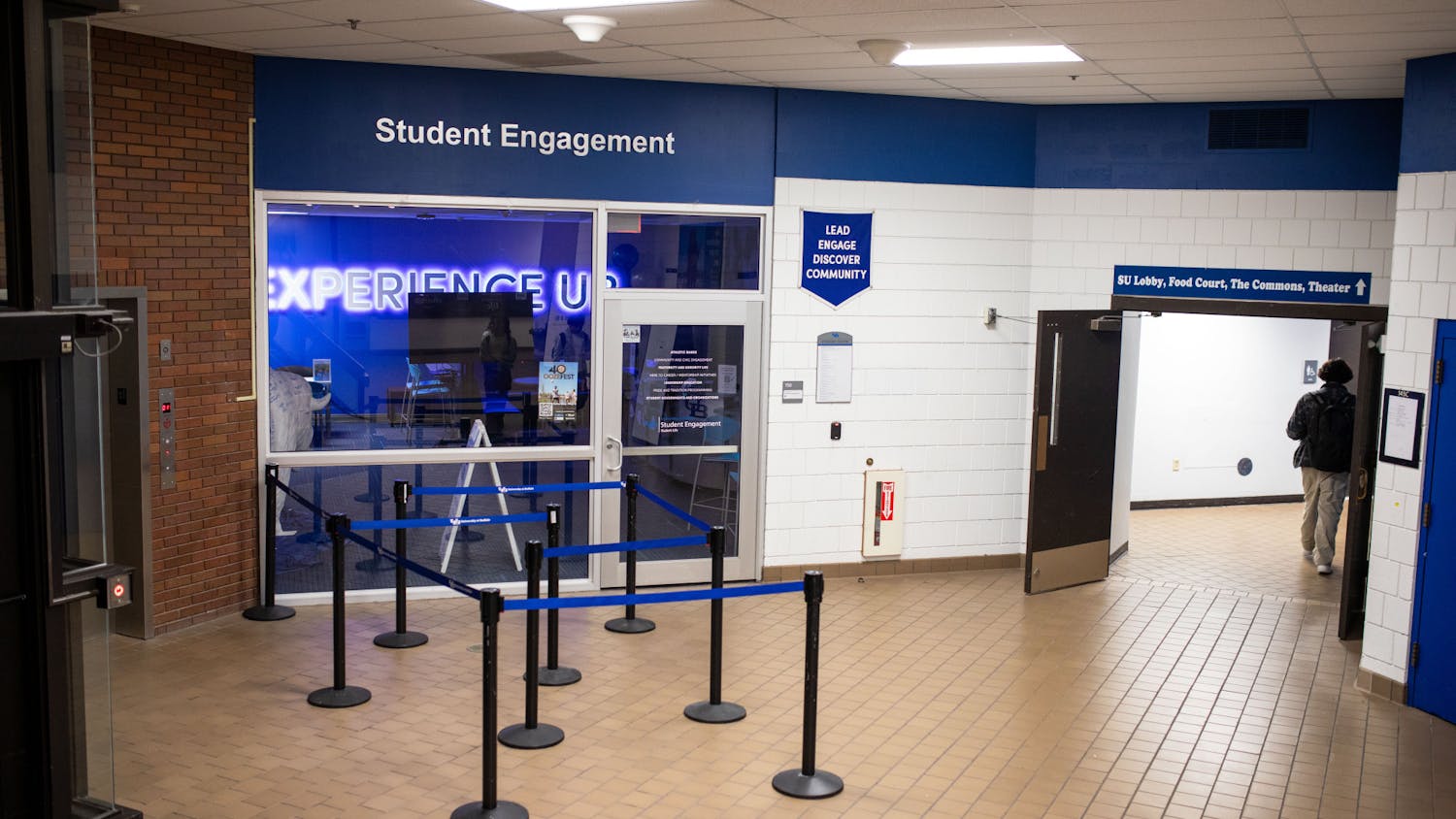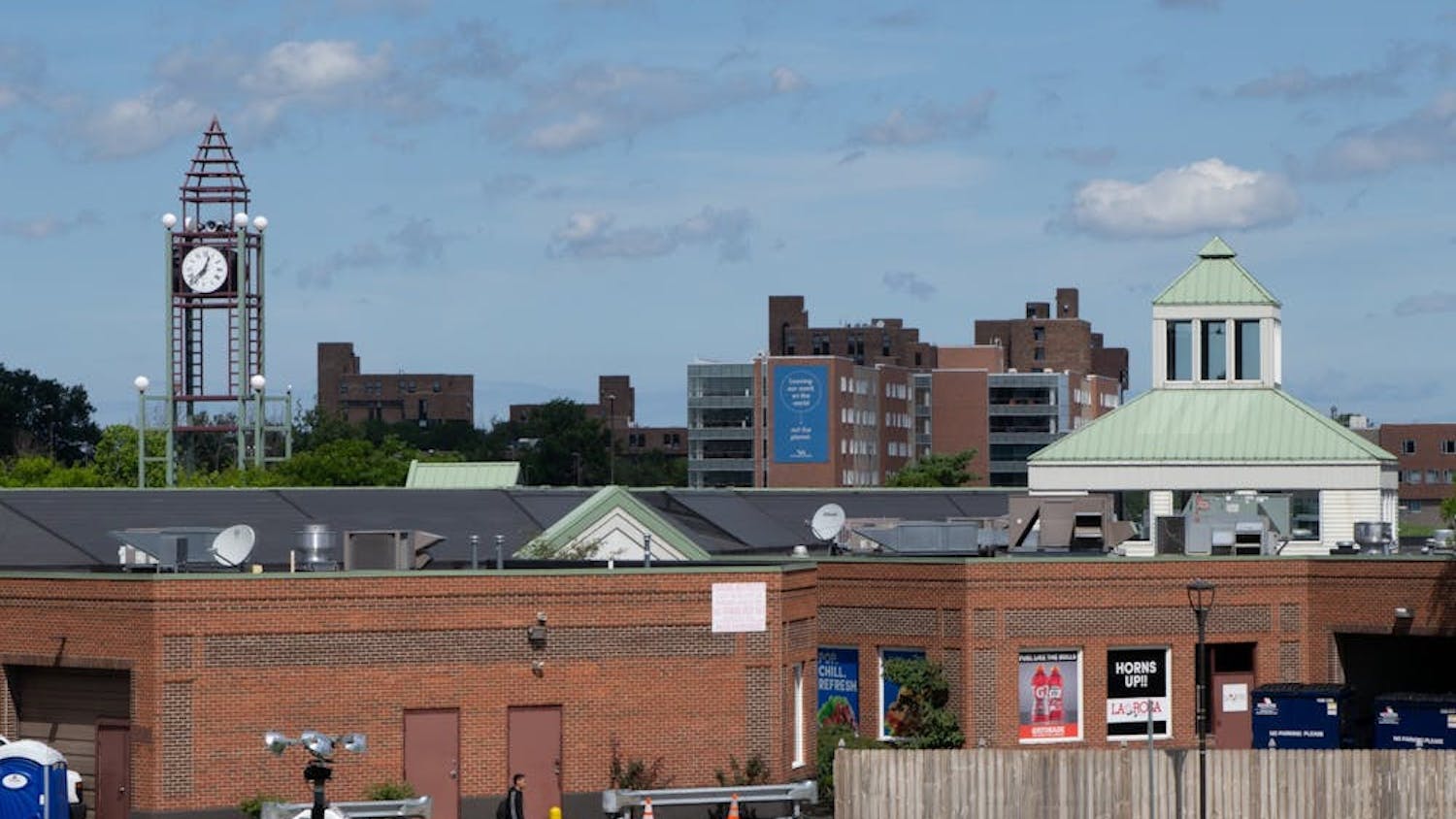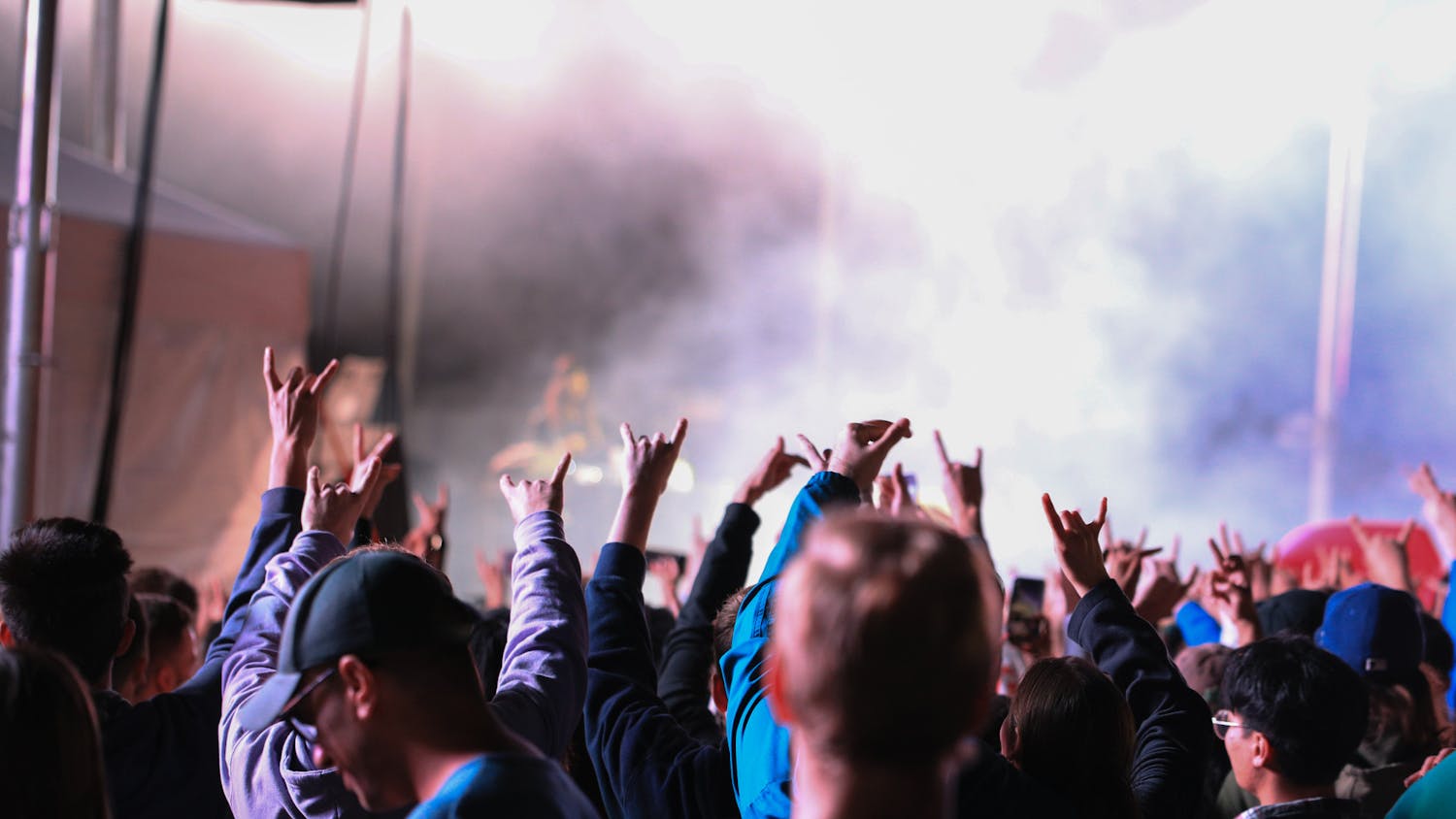Once again, UB students will be mailed a heftier bill. Next fall, an additional $30 will be added to the comprehensive fee, which supplements UB tuition, hiking the fee up to $655 for undergraduates and $487.50 for graduate students per semester.
The comprehensive fee covers costs of technology, parking and transportation, athletics, health services and campus life, all of which have been budgeted increases by as much as $12.50 per semester.
According to Vice President for Student Affairs Dennis Black, the university must boost the fee to keep up with inflation and stagnant tuition. Due to state budget shortages after Sept. 11, UB must subsidize contractual salary increases not included in the state budget.
"If we keep doing business the way we have been, we're going to have to increase fees," said Black. "It's going to cost more next year for supplies, it's going to cost more next year for energy and it's going to cost more next year for people. These are all costs that are covered by the fee."
Provost Elizabeth Capaldi agreed, stating in an e-mail that "SUNY has a policy to hold increases to the level of higher education inflation unless the chancellor approves beyond that level."
"This year UB's increase is at the level of inflation," stated Capaldi. "If fees don't cover inflation, services will suffer."
Eric Reich, student representative of the UB Council, said students make many demands of the administration and must understand that increases are necessary if the university is to both meet student needs for improved quality of life at UB and maintain its current status.
"UB is not charging more," Reich said. "They are being charged more and are passing it on to the students."
Reich complimented Black and the Office of Student Affairs for doing a "good job of prioritizing," and said, "This fee hike could have been a lot more."
Black considers the fee increase minor, and said the university has been trying to control costs through budget cuts and not scheduling additional programming.
"Our effort is to do more than we've done in the past with the same amount [of money] or less," he said.
Capaldi said the university has tried to be more efficient through lobbying for additional state support as well as seeking resources outside of New York state.
"We have the biggest private fundraising effort in SUNY, and had the largest increase in sponsored research in the system," she stated. "Both of these efforts pay for quality enhancement benefiting students."
Christian Oliver, president of the Student Association, said the fee increase "seems logical" and is relatively modest in comparison with previous years. He is concerned, however, with the fact that the Tuition Assistance Program, New York's state financial aid program, does not cover fees and that UB has the priciest comprehensive fee in the SUNY system.
"We have to make sure that a public university is always affordable," said Oliver. "But with these continuous increases I'm not sure that will be the case in the future."
Capaldi does not believe the fee increase will affect enrollment or retention at UB since the $30 only represents a .006 percent increase in the cost of attending UB. Reich agreed.
"There are some students whose parents pay for school and they could care less if [the fee] goes up and there are some students in school that $30 means driving on bald tires," said Reich. "But even the person with the bald tires would rather pay the $30 than not be able to get a computer or use their e-mail, or when they're sick, not be able to see a doctor."
The greatest portion of the fee increase will go toward athletics. According to Associate Athletic Director William Maher, the $12.50 increase per student each semester will mainly bring women's athletics on par with men's sports in compliance with Title IX.
"Rather than cut from men's sports we want to enhance women's sports so it is equal to the level of the men's," he said. "We are making extremely good progress in that area."
The increase will also help UB comply with Division I-A regulations, provide better services such as tutoring for student athletes and improve UB fitness centers by purchasing better equipment. In addition, Maher said athletics is seeking to transport more athletes to games in buses as a "safer and more reliable" alternative to vans.
Maher said athletics has been "raising the bar on ourselves" in terms of seeking funding through ticket sales, corporate sponsorship and philanthropic donations.
The $6.75 increase in the parking and transportation fee will be allocated to re-stripe parking spaces, pay contractual and debt retirement expenses, a possible new parking lot near the Ellicott complex and an orientation video informing incoming students of the services provided by the fee.
The increase will also fund new bus shelters, costing approximately $4,500 each, to replace old bus shelters, which are "too small," according to John Grela, director of University Police. Grela said over two million people, counting repeat users, utilize the campus transportation system each year. New bus shelters are also going to be installed in shuttle bus locations such as the Stadium Lot.
Technology and health services fee increases are equal at $5 each. The technology fee will provide protection against the greater number of viruses that have plagued UB's system, fund increases in the campus software license agreement with Microsoft, the Tech Tools CD and expansion of the cybraries.
Chief Information Officer Voldemar Innus noted UB's rank by Yahoo as the 10th most wired campus in the nation, with over 350 courses online through UBLearns used by over 16,000 students and faculty. He said fees only comprise a portion of technology funding on campus and the rest is obtained through an operating budget, gifts, grants and capital funding.
"All of these budgets are increased incrementally," said Innus.
According to Barbara Ricotta, dean for Student Affairs, the health fee will improve services for students with disabilities. A memorandum issued to student leaders stated, "additional funding would also provide support for a Braille printer so that students who are blind can make copies of their work."
The 75 cent increase in campus life will subsidize salary raises, provide disabled students who need additional time on exams with a testing-assistance facility and a student services center, said Ricotta.
Oliver also criticized the administration's last-minute notice of meetings on the fee increase.
Originally, a general student consultation meeting was scheduled for Monday, Feb. 25 at 2 p.m. and a meeting for student leaders was slated for Wednesday, Feb. 27. SA was given only one business day to inform their constituents. After SA complained about the short notice, Black moved the public meeting to Wednesday, March 6 to allow more time for soliciting student interest.
"We're looking to get feedback in different ways," said Ricotta. "I hope we get better feedback than we have in the past."
Last spring, only members of the SA executive board attended the student consultation meeting.
SA Vice President Joshua Korman said UB has a habit of trying to "muscle [fee increases] through rather than discuss them and have good outcomes." He said UB should make more of an effort to inform students about the fee through the use of listservs, such as the one used by the Student Health Center during the chicken pox outbreak.
"[Black] may have good ends in mind but he goes about it like a gangster," said Korman.
UB has advertised the consultation meetings in student publications and memorandums issued to student leaders. Students can e-mail questions to compfee@vpsa.buffalo.edu or review information on http://www.compfee.buffalo.edu.




